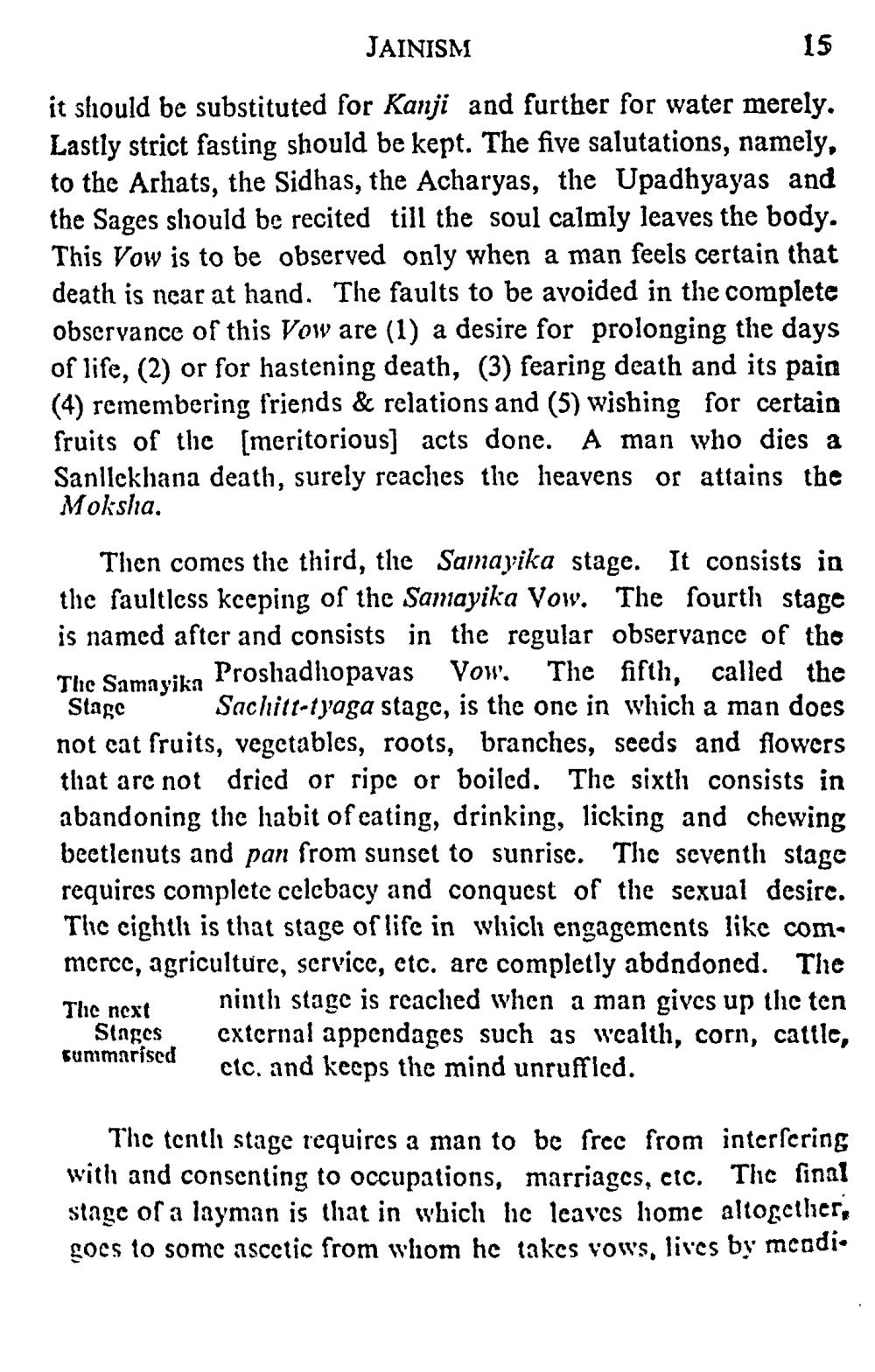________________
JAINISM
it should be substituted for Kanji and further for water merely. Lastly strict fasting should be kept. The five salutations, namely, to the Arhats, the Sidhas, the Acharyas, the Upadhyayas and the Sages should be recited till the soul calmly leaves the body. This Vow is to be observed only when a man feels certain that death is near at hand. The faults to be avoided in the complete observance of this Vow are (1) a desire for prolonging the days of life, (2) or for hastening death, (3) fearing death and its pain (4) remembering friends & relations and (5) wishing for certain fruits of the [meritorious] acts done. A man who dies a Sanllekhana death, surely reaches the heavens or attains the Moksha.
15
Then comes the third, the Samayika stage. It consists in the faultless keeping of the Samayika Vow. The fourth stage is named after and consists in the regular observance of the Proshadhopavas Vow. The fifth, called the The Samayika Stage Sachitt-tyaga stage, is the one in which a man does not eat fruits, vegetables, roots, branches, seeds and flowers that are not dried or ripe or boiled. The sixth consists in abandoning the habit of eating, drinking, licking and chewing beetlenuts and pan from sunset to sunrise. The seventh stage requires complete celebacy and conquest of the sexual desire. The eighth is that stage of life in which engagements like commerce, agriculture, service, etc. are completly abdndoned. The ninth stage is reached when a man gives up the ten external appendages such as wealth, corn, cattle, etc. and keeps the mind unruffled.
The next
Stages summarised
The tenth stage requires a man to be free from interfering with and consenting to occupations, marriages, etc. The final stage of a layman is that in which he leaves home altogether, goes to some ascetic from whom he takes vows, lives by mendi




